Inhaltsverzeichnis
MCT is now a common term for many people. MCT oil is becoming increasingly popular, especially when it comes to ketogenic diets, as it provides quick energy and is good for the brain, among other things. But what exactly is MCT oil and why do so many people swear by it?
What is MCT oil?
In the world of nutrition, an acronym keeps cropping up: MCT - medium-chain fatty acids . This particular form of healthy fat is often underrepresented in our Western diet, although it offers many benefits to the body. Let's take a closer look at what MCTs are, where they are found and why they are considered to be beneficial to our health. MCT stands for medium-chain triglycerides . In contrast to conventional fatty acids, MCTs are easier for the body to break down, utilize and digest. This makes them an efficient source of energy and has contributed to their growing popularity in nutritional science.
MCTs are found in various foods, with some natural sources being particularly noteworthy:- Coconut oil (15% MCT): A popular oil that not only tastes good but also contains a high proportion of MCT.
- Palm kernel oil (7.9% MCT): Another oil commonly used in cooking that contributes to medium-chain fatty acids.
- Cheese (7.3% MCT): Cheese not only has a delicious taste, but also provides a considerable amount of MCT.
- Milk (6.9% MCT): Dairy products can be a natural source of these special fatty acids.
- Butter (6.8% MCT): A classic in the kitchen that not only provides taste but also MCT.
- Yogurt (6.6% MCT): A delicious way to incorporate MCTs into your diet.
Origin and extraction of MCT C8
- What is MCT oil and how does it work for dogs?
MCT oil: benefits, application & effects
MCT is now a common term for many people. MCT oil is becoming increasingly popular, especially when it comes to ketogenic diets, as it provides quick energy and is good for the brain, among other things. But what exactly is MCT oil and why do so many people swear by it?
What is MCT oil?
In the world of nutrition, an acronym keeps cropping up: MCT - medium-chain fatty acids . This particular form of healthy fat is often underrepresented in our Western diet, although it offers many benefits to the body. Let's take a closer look at what MCTs are, where they are found and why they are considered to be beneficial to our health. MCT stands for medium-chain triglycerides . In contrast to conventional fatty acids, MCTs are easier for the body to break down, utilize and digest. This makes them an efficient source of energy and has contributed to their growing popularity in nutritional science.
MCTs are found in various foods, with some natural sources being particularly noteworthy:
- Coconut oil (15% MCT): A popular oil that not only tastes good but also contains a high proportion of MCT.
- Palm kernel oil (7.9% MCT): Another oil commonly used in cooking that contributes to medium-chain fatty acids.
- Cheese (7.3% MCT): Cheese not only has a delicious taste, but also provides a considerable amount of MCT.
- Milk (6.9% MCT): Dairy products can be a natural source of these special fatty acids.
- Butter (6.8% MCT): A classic in the kitchen that not only provides taste but also MCT.
- Yogurt (6.6% MCT): A delicious way to incorporate MCTs into your diet.
Origin and extraction of MCT C8
MCT oil, short for medium chain triglycerides , is a shooting star among health-conscious people. Contrary to popular belief about saturated fatty acids, MCT oil is a healthy fat that is extracted from liquid coconut oil, but can also be obtained from palm kernel oil and dairy products. The main component is medium-chain fatty acids, whose molecular chains with 6 to 12 atoms are particularly easy to digest.The length of the fat molecule chains plays a crucial role in how our body generates energy. The shorter the chain, the faster the fat can be converted into energy. MCT oils are therefore lightning-fast energy suppliers, in contrast to long-chain fatty acids, which only release their energy hours after food is consumed.
Coconut oil, especially MCT oil, contains various medium-chain fatty acids such as:
- C6 (caproic acid): Caproic acid is a six-carbon MCT.
- C8 (caprylic acid): Caprylic acid is an eight-carbon MCT. It is often referred to as the most rapidly absorbed and metabolized MCT.
- C10 (capric acid): Capric acid has ten carbon atoms and is also easily absorbed by the body.
- C12 (lauric acid): With twelve carbon atoms, lauric acid is the longest MCT. Although it is an MCT, it is metabolized somewhat more slowly than the shorter MCTs.
Coconut Oil VS. MCT Oil
Is MCT oil the same as coconut oil? - No. The most notable difference is that MCT oil is liquid at room temperature, while coconut oil is solid.In addition, MCT oil is obtained by targeted extraction of the fatty acids from natural sources such as coconut oil. The main focus is on the concentration of these bioavailable fatty acids. Essentially, MCT oil offers a pure form of MCTs and thus a convenient way to integrate these fatty acids into the diet in higher concentrations. The advantage lies in the targeted enrichment with the specific fatty acids without the addition of long-chain fatty acids.
Coconut oil, on the other hand, is extracted directly from the flesh of the coconut and naturally contains MCTs. It is characterized by its versatility in the kitchen and has a characteristic taste and smell. However, the fat content of coconut oil does not consist exclusively of MCTs, but also contains long-chain fatty acids. Coconut oil is therefore a natural source of MCTs, albeit in a mixture with other fatty acids.
Overall, MCT oil emphasizes the targeted focus on medium-chain triglycerides, while coconut oil, as a natural source of MCTs, has a broader spectrum of fatty acids. Both have their uses, which depend on individual dietary needs and preferences.
The Power of MCT Oil: More than just Fast Energy
MCT oil, which is often confused with coconut oil, is becoming increasingly popular, especially among followers of the ketogenic diet. In contrast to other saturated fatty acids, our body reacts differently to MCT oil. The easily digestible fatty acids are quickly transported to the liver and converted into ketone bodies. This rapid energy supply not only has a positive effect on physical performance, but also on mental concentration and endurance.
MCT oil has established itself as an insider tip in the world of sport. Athletes report an increase in performance and a reduction in the formation of lactate in the muscles. MCT oil also offers advantages for people who follow a ketogenic, paleo or intermittent diet. It creates a long-lasting feeling of satiety and is processed efficiently by the body because the fats are not stored.
MCT Oil Effect: Health Benefits
omega fatty acids and MCT oil
The intake of omega fatty acids, especially DHA and EPA, can be increased by MCT oil. These essential fatty acids are important for the brain, cardiovascular system, hormones and immune system.
brain health
The positive effects of MCT oil are not just subjective experiences, but are also supported by scientific studies. MCT oil has been shown to improve memory and overall brain function in people with memory, including potential benefits for people with Alzheimer's disease or other cognitive disorders.
MCT oil and ketosis
If you want to delve into the world of the ketogenic diet, MCT oil is a trusty companion. It helps put the body into the coveted state of ketosis by burning fat instead of glucose. The rapid absorption of MCT oil increases ketone production, even if you continue to consume carbohydrates.
weight management
The benefits of MCT oil extend to weight management. It satisfies you faster, stimulates the metabolism and reduces the conversion of excess carbohydrates into fat. Studies show that taking MCT oil can help burn fat.
energy supplier
MCT oil is not only great for the kitchen, but also for the gym. Studies show that it increases muscle strength and can even help improve endurance.
immune booster
MCT oil, especially the lauric acid it contains, not only supports energy supply but has proven antibacterial, antiviral and antifungal properties.
The triple protective shield
MCT and blood sugar - The increasing number of diabetics in Germany is alarming and the search for effective solutions is more important than ever. MCT oil could be the key. Studies have shown that MCTs increase the body's insulin sensitivity and thus counteract insulin resistance. A balanced blood sugar level is crucial and MCT oil can make an important contribution here.
MCT and the liver - Studies have shown that MCTs, which are mainly found in coconuts, have a protective effect on the liver and digestive system. In addition, MCTs have the potential to reduce the risk of fatty liver, one of the most common liver diseases in the world. Scientists suspect that this is due to the ability of MCTs to minimize the accumulation of toxic substances in the liver.
MCTs and cholesterol levels - balanced cholesterol and lipid levels are crucial for a healthy heart and body. MCTs can act as a savior here by helping to lower the amount of harmful cholesterol in the body and reduce cardiometabolic risk factors. This natural balance can have a significant impact on long-term heart health.
taking MCT oil
Slow approach to MCT oil - Before diving into the world of MCT oil, it is important to slowly get your body used to this supplement. Start with one teaspoon of MCT oil per day. This will avoid possible negative reactions such as diarrhea or stomach pain that can occur if you introduce it too quickly.
Increase the amount after one week - If the body tolerates the teaspoon of MCT oil well, you can slightly increase the amount after one week. This gradual increase allows your digestive system to adjust and minimizes the risk of unwanted side effects. Increase the amount to 1 to 2 tablespoons of MCT oil per day.
Important notes on using MCT oil - It is important not to consider MCT oil as a complete replacement for other fats in the diet. The body requires a variety of fats for different functions and completely eliminating them can lead to deficiencies. So MCT oil should be used as a supplement, not a replacement, to ensure that the body is getting all the nutrients it needs.
Applications of MCT oil
The versatility of MCT oil makes it particularly attractive for integration into everyday life.
In nutrition
For athletes and people who lead an active lifestyle, MCT oil can be a valuable addition to their diet. Whether taken pure, mixed into smoothies, stirred into yogurt or as an ingredient in the trendy Bulletproof Coffee - MCT oil adapts flexibly to any lifestyle. Bulletproof Coffee, a mixture of ghee, MCT oil and coffee, promises long-lasting energy, reduces the feeling of hunger during intermittent fasting and promotes concentration.
In the kitchen
If you prefer something a little lighter, you can also stir MCT oil into salad dressings or vinaigrettes. However, you need to be patient when taking it. It is recommended to start with one teaspoon per day and slowly increase the dose to a maximum of six teaspoons per day.
MCT as a carrier oil
It transports cannabidiol (CBD) and other beneficial phytochemicals. This function is based on a simple principle: the carrier oil acts as a solvent to extract the active components of the hemp plant from the hemp extract so that they can be better absorbed by the body. This concept is not only used in CBD products, but also in other areas, such as the production of powdered drink concentrates such as Kool-Aid, where the powder is dissolved in water, or in the production of dishwashing detergent. The main difference is that CBD oil uses fat-soluble carriers, unlike water. This is because cannabinoids are not water-soluble, but fat-soluble.
What is a carrier oil
As already mentioned, MCT oil is also often used as a carrier oil, especially in combination with CBD oil. But what exactly is a carrier oil and what advantages does it bring?
A CBD carrier oil is an oil that serves as a base for the absorption of CBD (cannabidiol) and other phytochemicals. It acts as a solvent that extracts the active compounds from the hemp extract and makes them more available to the body. Essentially, the carrier oil carries the CBD molecules and helps to distribute and absorb them effectively.
Benefits of using carrier oils in combination with CBD
Improved absorption: CBD is fat-soluble, meaning it is better absorbed by the body when combined with a carrier oil. The carrier oil helps emulsify the CBD molecules, making them easier to absorb through the gastrointestinal tract.
Easy dosing: CBD in its pure form is often difficult to dose. Diluting CBD in a carrier oil simplifies dosing because the CBD is evenly distributed throughout the oil. This makes it easier for consumers to accurately determine and control the desired dosage.
Additional health benefits: Many carrier oils offer additional health benefits such as antioxidant properties, high levels of omega-3 and omega-6 fatty acids, or antimicrobial effects. By using a high-quality carrier oil, CBD products can not only achieve the desired effects of CBD but also provide additional health benefits.
Improved taste: Some carrier oils have a pleasant taste and can help mask the often bitter taste of CBD. This can make taking CBD products more pleasant and improve consumer compliance.
The most common CBD carrier oils and their properties
There are a variety of carrier oils that can be used for CBD products. Here are some of the most common ones with their pros and cons:
MCT oil (medium-chain triglycerides)
Advantages: High absorption rate, allowing for rapid absorption of CBD, tasteless and long shelf life.
Cons: May cause stomach problems in some people, not suitable for all diets.
hemp seed oil
Benefits: Hemp seed oil is rich in omega-3 and omega-6 fatty acids, which are important for heart and brain health. It also has a natural hemp flavor and may provide additional health benefits.
Cons: Hemp seed oil may have lower CBD absorption compared to other carrier oils and a strong taste that may not be to everyone's taste.
grape seed oil
Benefits: Grapeseed oil has a high absorption rate and is rich in antioxidants that may have anti-inflammatory properties. It has a fruity flavor.
Cons: Can be more expensive than other carrier oils, not as widely available as some other options.
olive oil
Benefits: Olive oil is rich in plant nutrients and tastes pleasant. It also has a slow release of CBD, which can lead to long-lasting effects.
Cons: Olive oil may have a lower CBD absorption rate compared to other carrier oils and may have a strong taste.
Vegetable glycerin
Advantages: Vegetable glycerin has a sweet taste and can be used in e-cigarettes and vaporizers. It is also a cost-effective alternative.Cons: Possibly lower CBD absorption compared to other carrier oils, sticky consistency.
CBD oil vs. MCT oil
The world of supplements has exploded in recent years, and two products that have been particularly in the spotlight are CBD oil and MCT oil. But what exactly is the difference between the two?
CBD oil |
MCT oil |
| CBD oil comes from the cannabis plant, but don't worry, it won't get you high! It's important to know that CBD is not psychoactive, unlike its famous counterpart THC. CBD has gained popularity in recent years as it offers many potential health benefits. | MCT oil, or medium-chain triglycerides, is a type of fatty acid that is shorter than the long-chain fatty acids found in most dietary fats. MCT oil is used to support weight loss and as an energy source, among other things. |
Origin and extraction: |
|
| CBD oil is extracted from hemp plants, often organically grown. The extraction process guarantees a pure and high-quality product. | MCT oil is extracted from natural sources such as coconuts or palm kernels. It contains fat molecules that are easily absorbed by the body, resulting in rapid energy supply. |
Composition: |
|
|
CBD (Cannabidiol): This is the main ingredient in CBD oil. CBD is a non-psychoactive compound derived from hemp. It is being researched for its potential health benefits, including anti-inflammatory, pain relief, anxiety reduction, and more. Carrier oil: CBD is usually dissolved in a carrier oil to make dosing easier and improve absorption. Commonly used carrier oils include hemp seed oil, olive oil, MCT oil (medium chain triglycerides), or coconut oil. Terpenes: Terpenes are aromatic compounds found in many plants, including hemp. Not only do they contribute to the aroma of the oil, but they can also have additional health benefits. Terpenes can vary depending on the variety of hemp and can also be found in essential oils. Other cannabinoids: In addition to CBD, other cannabinoids can also be found in hemp. Some CBD oils can contain small amounts of THC (tetrahydrocannabinol), which has psychoactive properties, but usually below the legal limits. |
MCT oil is the abbreviation for "medium chain triglycerides" These are a type of fatty acid that is shorter than those found in most other dietary fats. MCTs are absorbed and metabolized by the body more easily and quickly than long-chain triglycerides (LCTs) found in most other dietary fats. Here is a typical composition of MCT oil: C6 (caproic acid): Caproic acid is a six-carbon MCT. C8 (caprylic acid): Caprylic acid is an eight-carbon MCT. It is often referred to as the most rapidly absorbed and metabolized MCT. C10 (capric acid): Capric acid has ten carbon atoms and is also easily absorbed by the body. C12 (lauric acid): With twelve carbon atoms, lauric acid is the longest MCT. Although it is an MCT, it is metabolized somewhat more slowly than the shorter MCTs. The exact composition may vary depending on the manufacturer and product. MCT oil is often derived from natural sources such as coconut or palm kernel oil. It is often used as a carrier oil for CBD oils because it is easily digestible and can improve the bioavailability of cannabinoids. MCT oil is also commonly used in the ketogenic diet because it provides a quick source of energy and can be easily converted into ketones. |
mechanism of action: |
|
| CBD interacts with the body's endocannabinoid system, which plays an important role in regulating various processes in the body. It can have a calming effect, reduce inflammation, and even help with sleep problems. | Fast energy supply: MCTs are easily absorbed by the body and converted into ketones in the liver, which provide quickly available energy. Supports the ketogenic diet: MCT oil is popular among those on a ketogenic diet because of its ability to put the body into a ketogenic state. |
Applications: |
|
|
Stress relief and anxiety relief: Many people use CBD oil to relieve stress and anxiety. CBD can interact with receptors in the endocannabinoid system, which can lead to a calming effect.
Treating anxiety: CBD may help relieve symptoms of various anxiety disorders, including social anxiety, generalized anxiety, and post-traumatic stress disorder (PTSD).
|
Energy booster: The rapid absorption of MCTs by the body and the conversion in the liver into ketone bodies ensure a quick and efficient energy supply. MCT oil is used by many as an energy boost, especially before training. Weight management: MCTs can help increase feelings of fullness, which in turn can lead to reduced calorie consumption, making MCT oil a popular supplement for people trying to control their weight or lose weight. Supports a ketogenic diet : Ketogenic diet followers use MCT oil to put the body into a ketogenic state. The ketones produced by digesting MCTs can serve as an alternative energy source when the body switches from burning fat to burning carbohydrates. Mental clarity and focus: Some users report increased focus and improved mental clarity after taking MCT oil. The rapid energy provided by ketones can help increase mental performance and alertness. Carrier oil for dietary supplements: Due to its neutral taste and good tolerability, MCT oil is often used as a carrier oil for other fat-soluble dietary supplements. This includes combining it with CBD oil to increase the bioavailability of CBD. Applications in the kitchen: Due to its high heat resistance, MCT oil is ideal for cooking and frying. It is a healthy alternative to conventional cooking oils. |
Differences and similarities:The main difference between CBD and MCT oil lies in their origin, composition, and intended use. While CBD oil is known for its potential health benefits, MCT oil primarily serves as an energy source. Importantly, MCT oil is often used as a carrier oil for CBD oil because of its ability to improve the absorption of CBD in the body. |
|
Conclusion:Overall, both CBD and MCT oil offer unique benefits and can be useful in different situations. If one is looking for health benefits, CBD oil may be the better choice. However, if one is looking for an energy source or is on a ketogenic diet, MCT oil could be the right supplement for one. Before making a decision, however, it is advisable to speak with a healthcare provider to ensure that the products meet individual needs. |
|
MCT oil for dogs
You may be wondering if your dog needs MCT oil or if MCT oil is good for dogs and cats. This is a question that many pet owners and their veterinarians are asking themselves, as MCT oil has become increasingly popular in recent years. - Click here to go directly to Calma CBD oil for dogs .
What is MCT oil and how does it work for dogs?
MCT oil, which is derived from coconut oil, has become increasingly popular recently as its benefits for dogs are becoming more apparent. MCT oil is mainly recommended for chronically ill dogs, but can also be beneficial for healthy animals. Positive effects include energy supply, good digestion and a shiny coat.
How much MCT oil can I give my dog?
Veterinarians recommend starting slowly to observe the dog's reaction. The recommended dosage is 1-2 teaspoons per 5 kg of body weight.
Possible side effects and how to avoid them
MCT oil is relatively safe, but slow introduction is important to identify potential side effects. Diarrhea may occur in dogs with lactose intolerance. Avoid use in dogs with lactose intolerance, pregnant or lactating dogs, and dogs with pancreatitis.
Which dog food goes best with MCT oil?
Both canned and dry foods are good candidates for adding MCT oil, and there is no need to worry even if you have a picky dog.
MCT oil as a valuable supplement in dog food
If you want to give your dog an extra energy boost or are concerned about the quality of their food, MCT oil could be a good addition to their daily diet. MCT oils provide healthy fats and easily digestible calories that can help with chronic conditions such as arthritis or diabetes. MCT oil also combines well with CBD to maximize the health benefits.


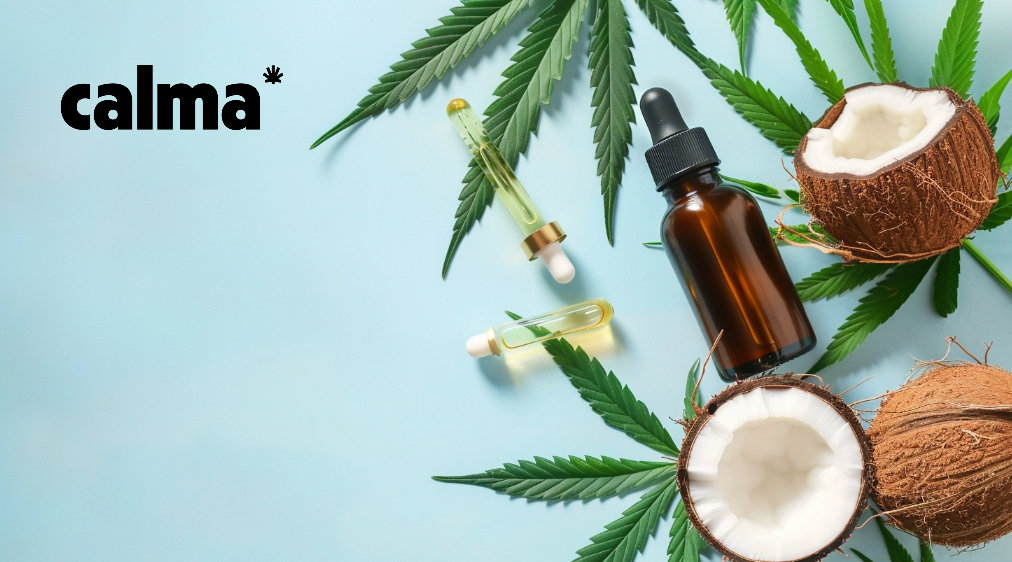
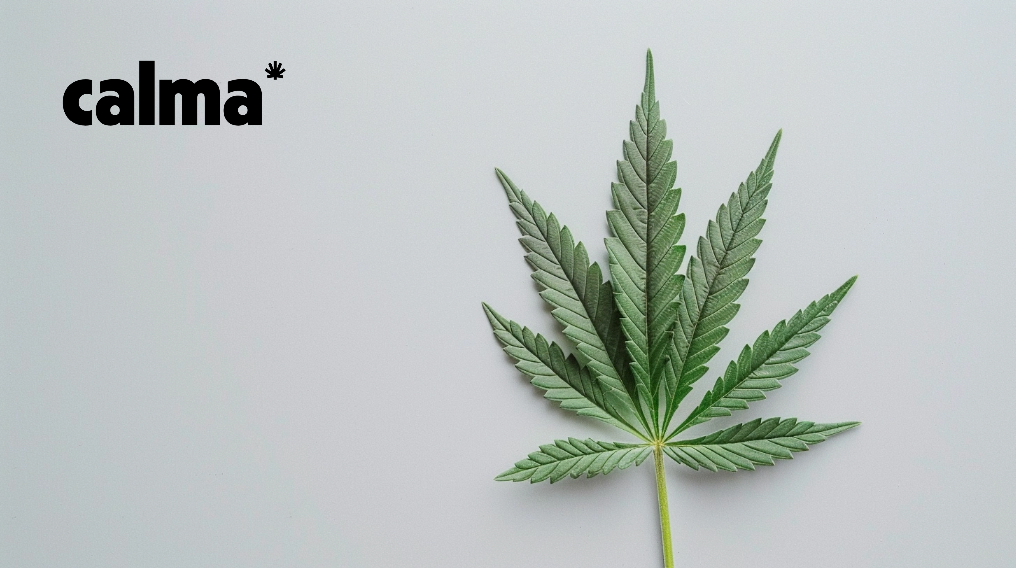


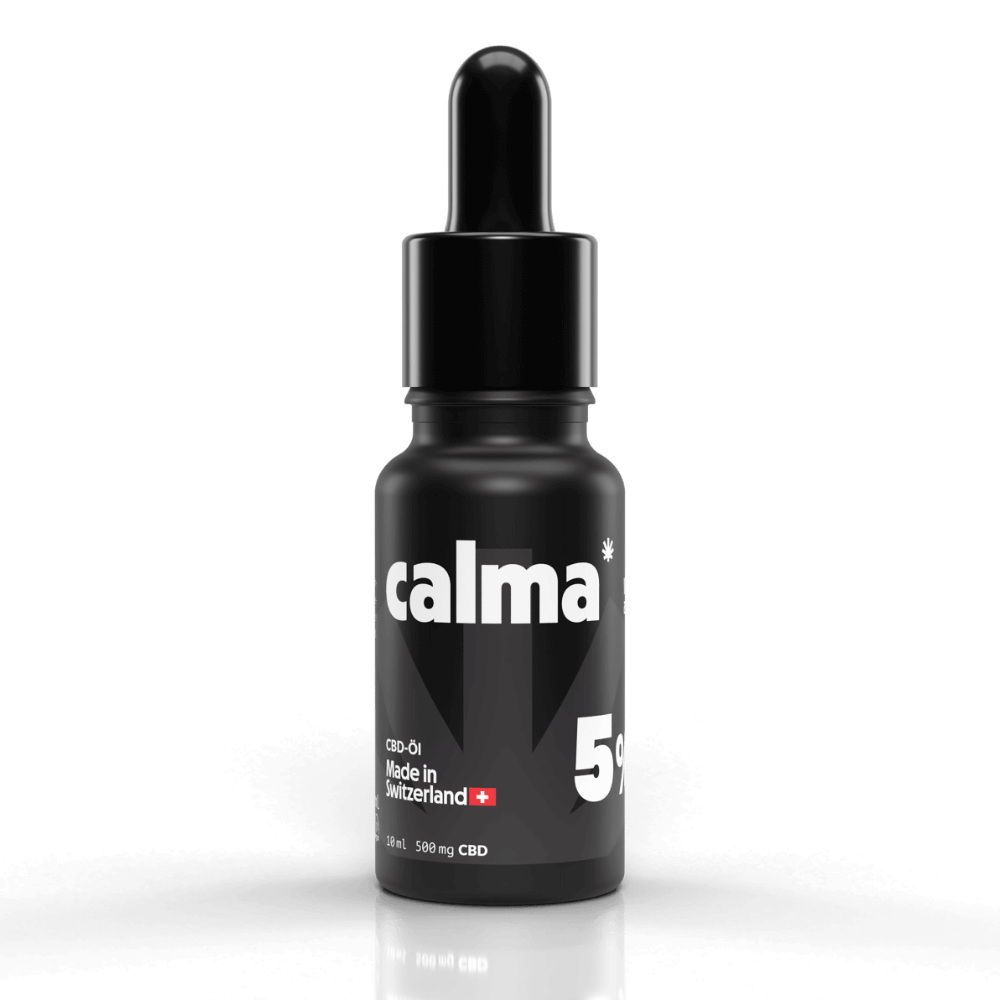
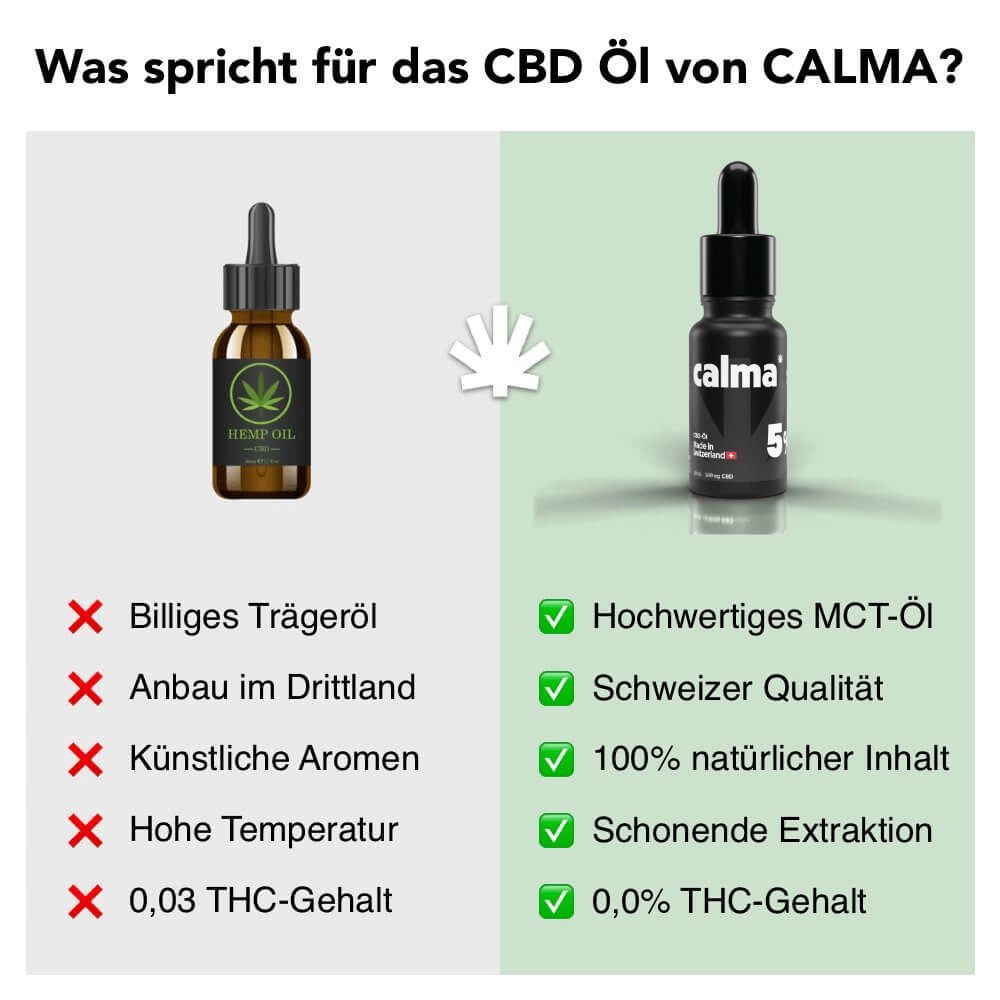
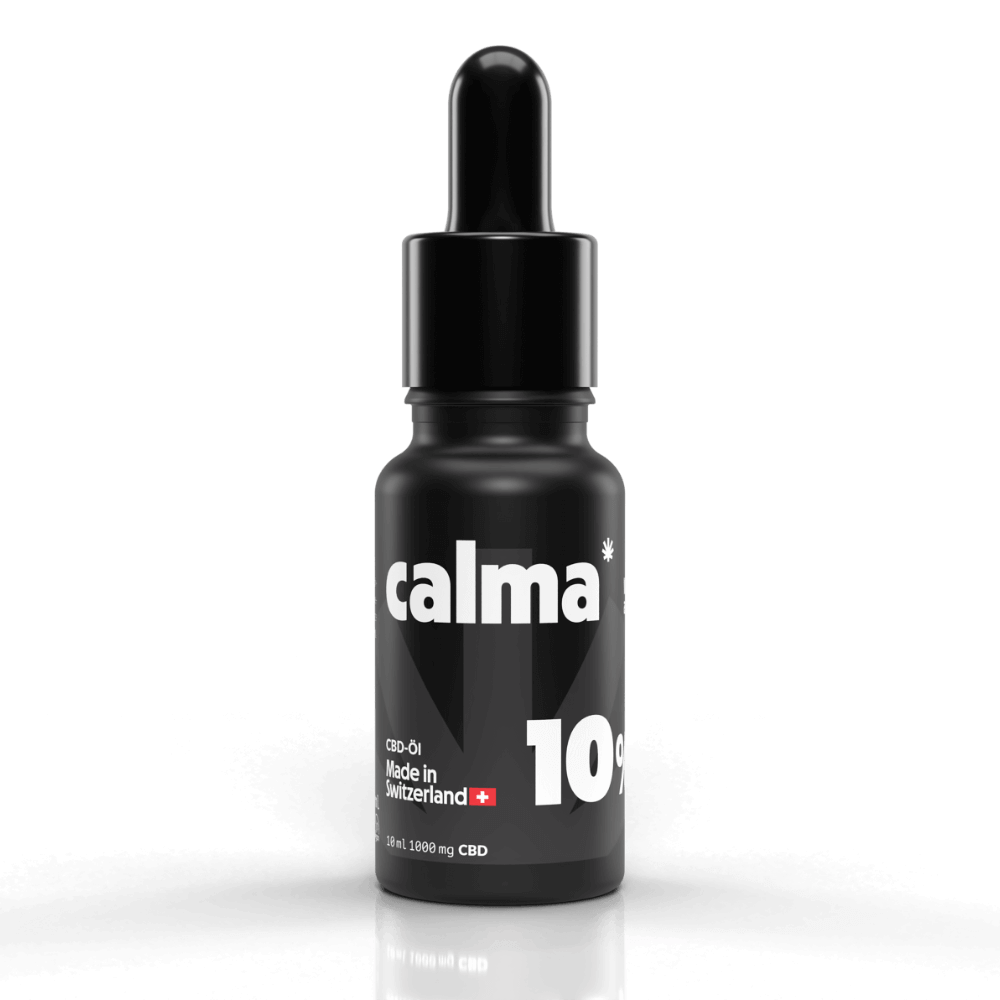
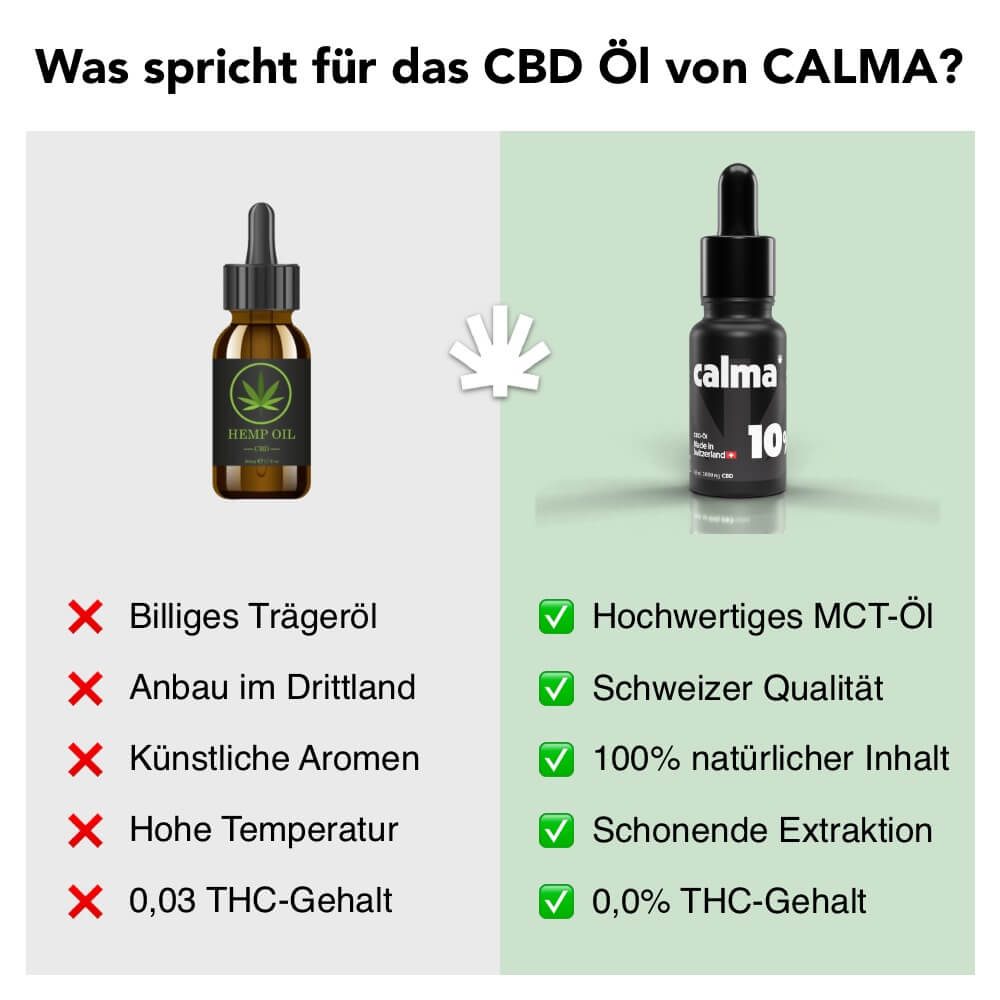
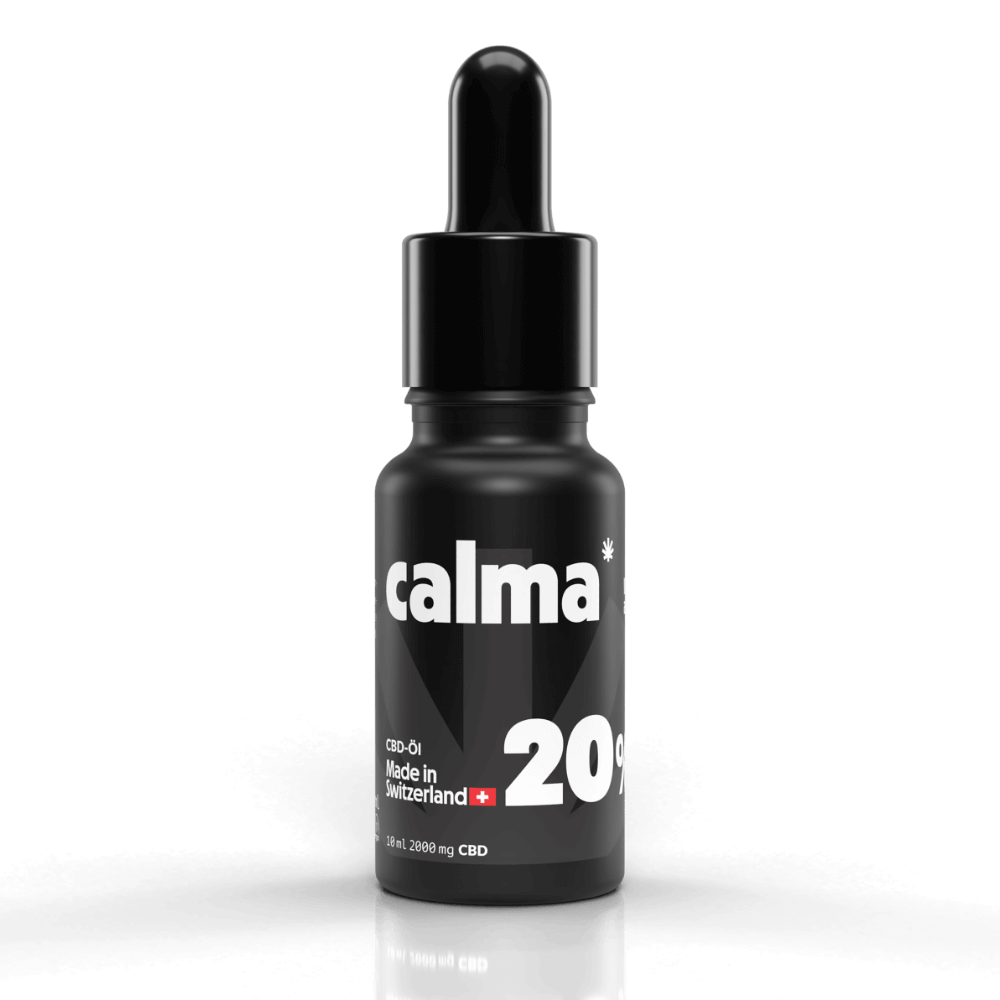
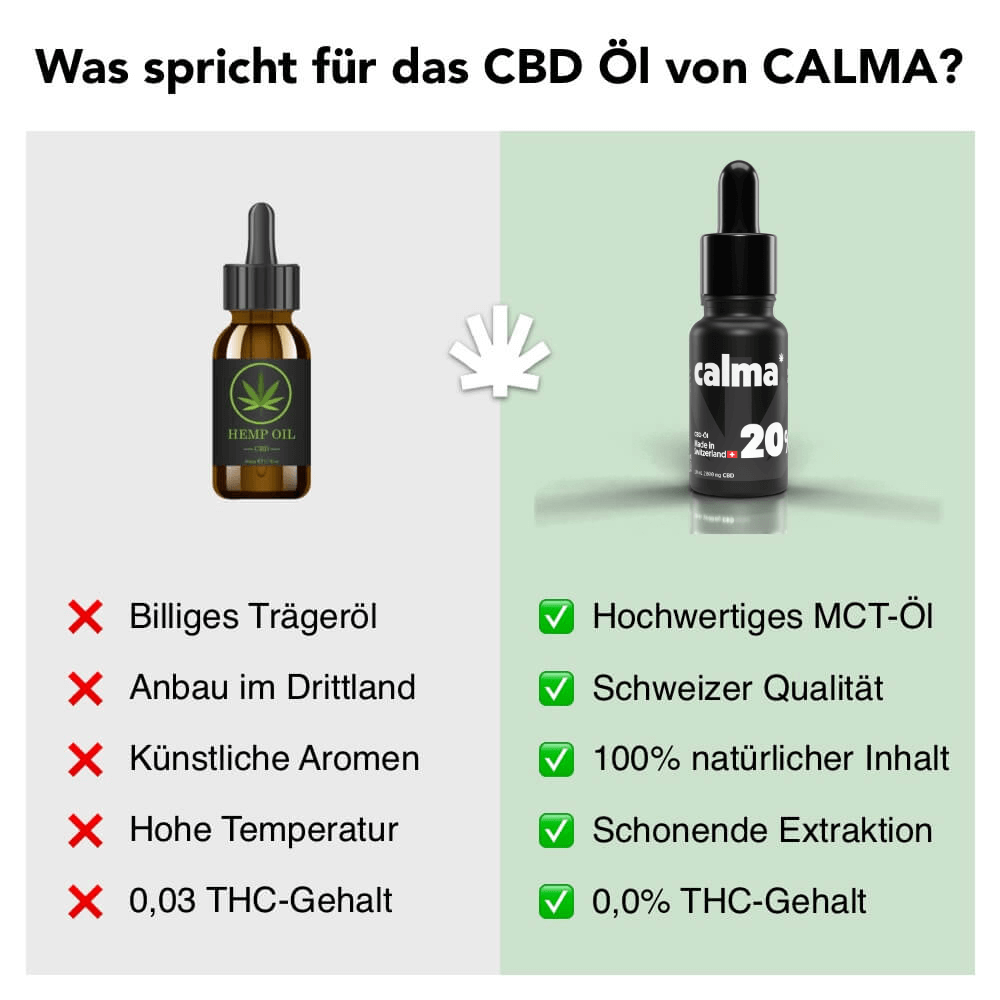
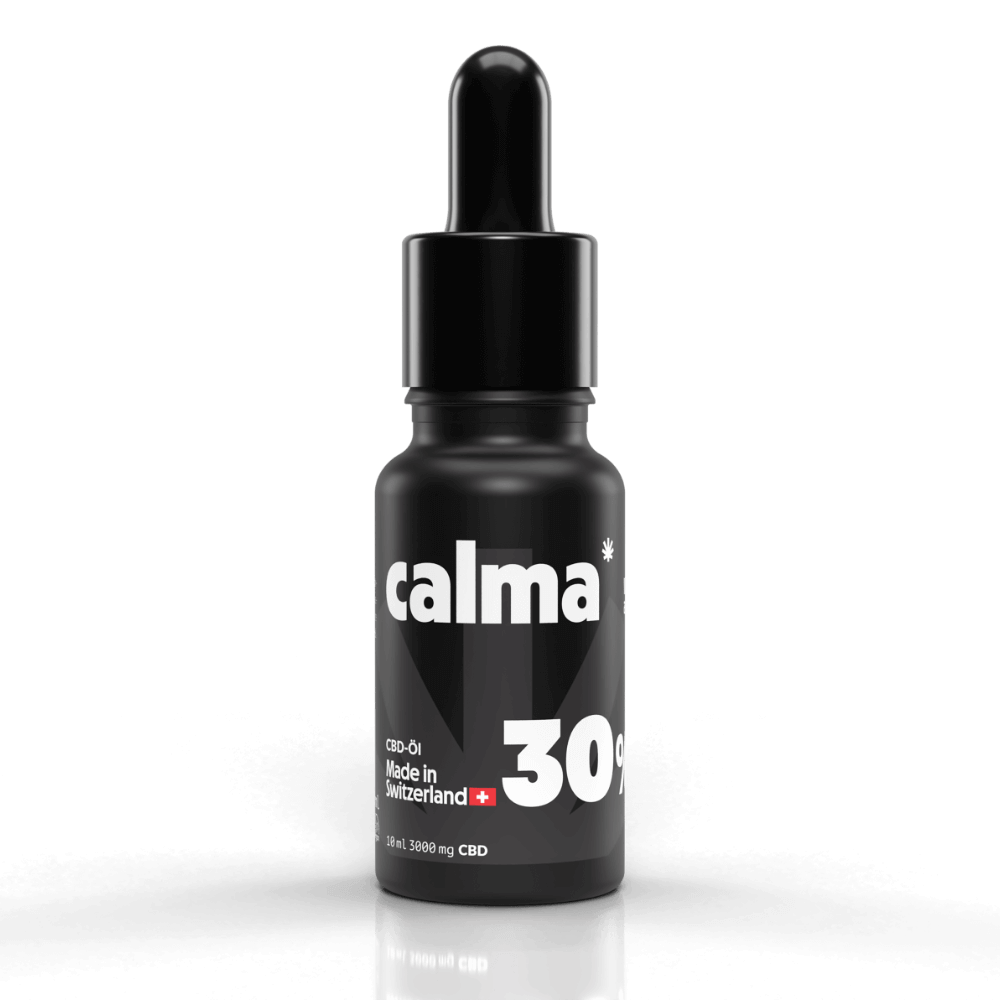
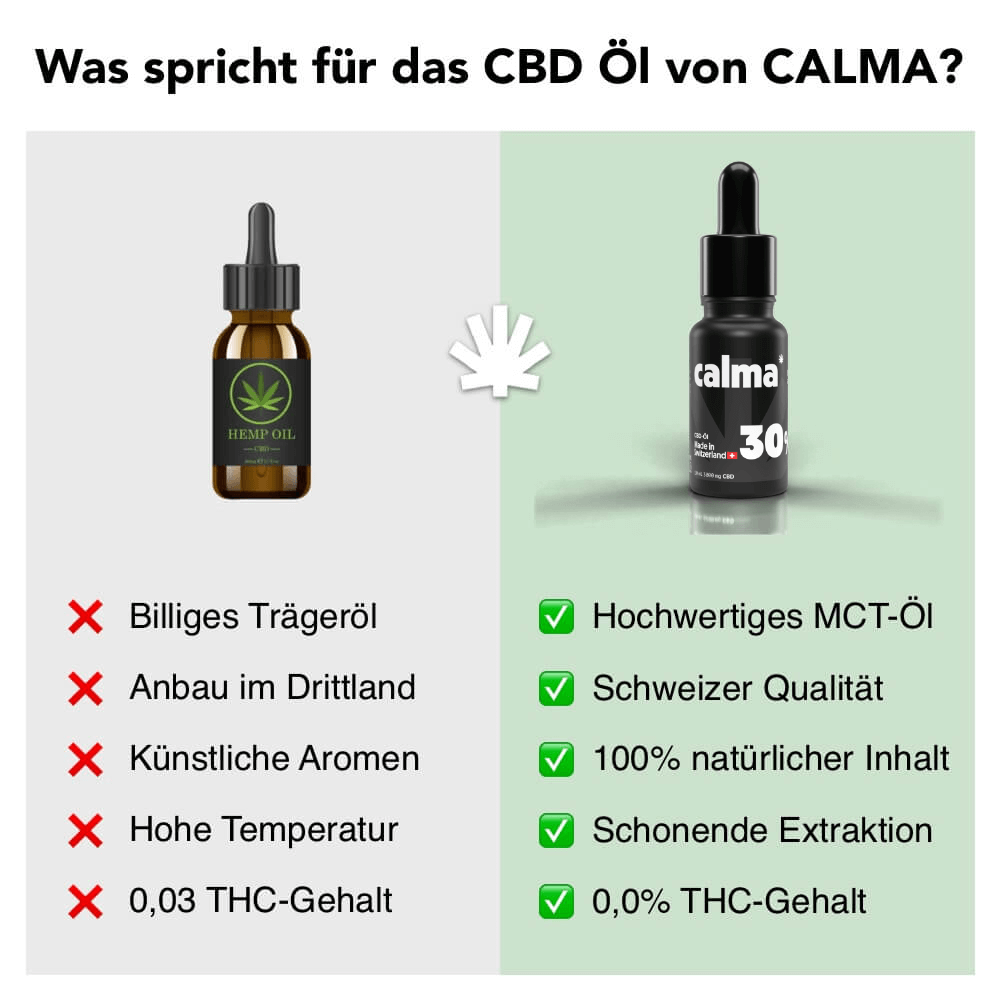
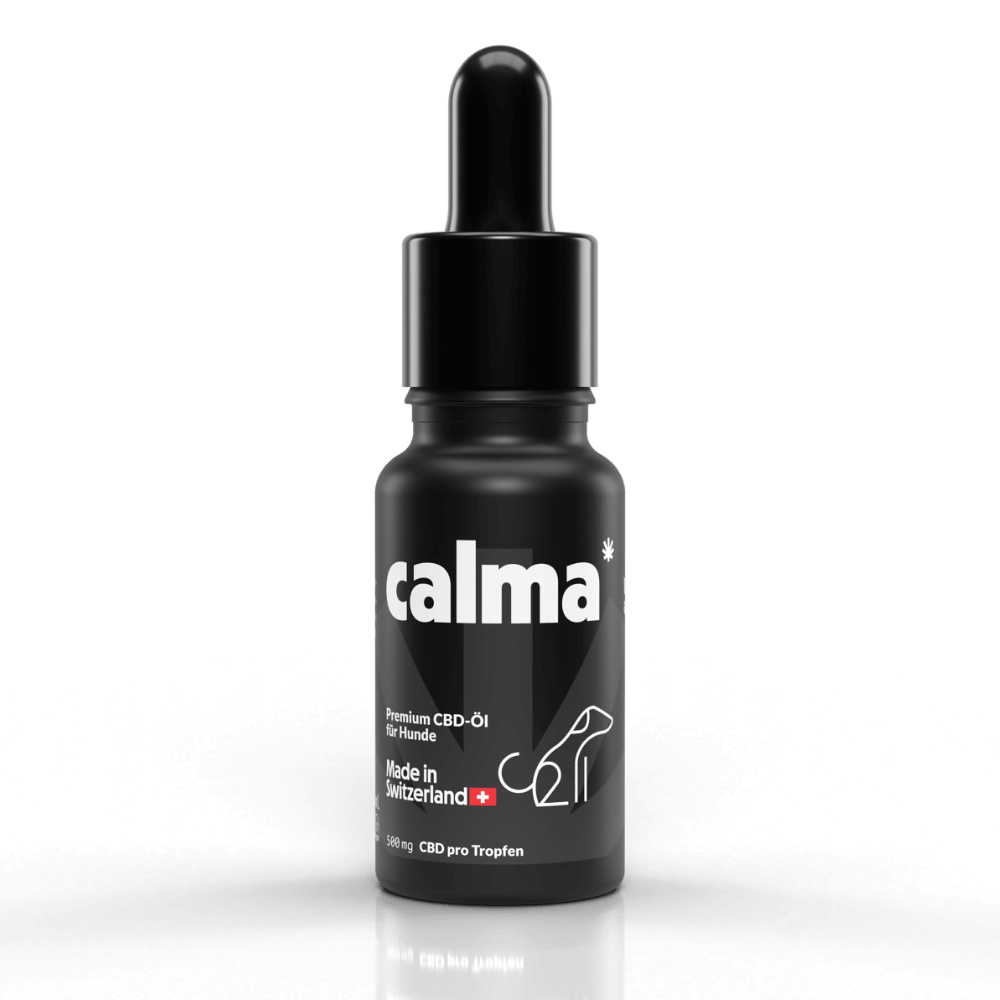
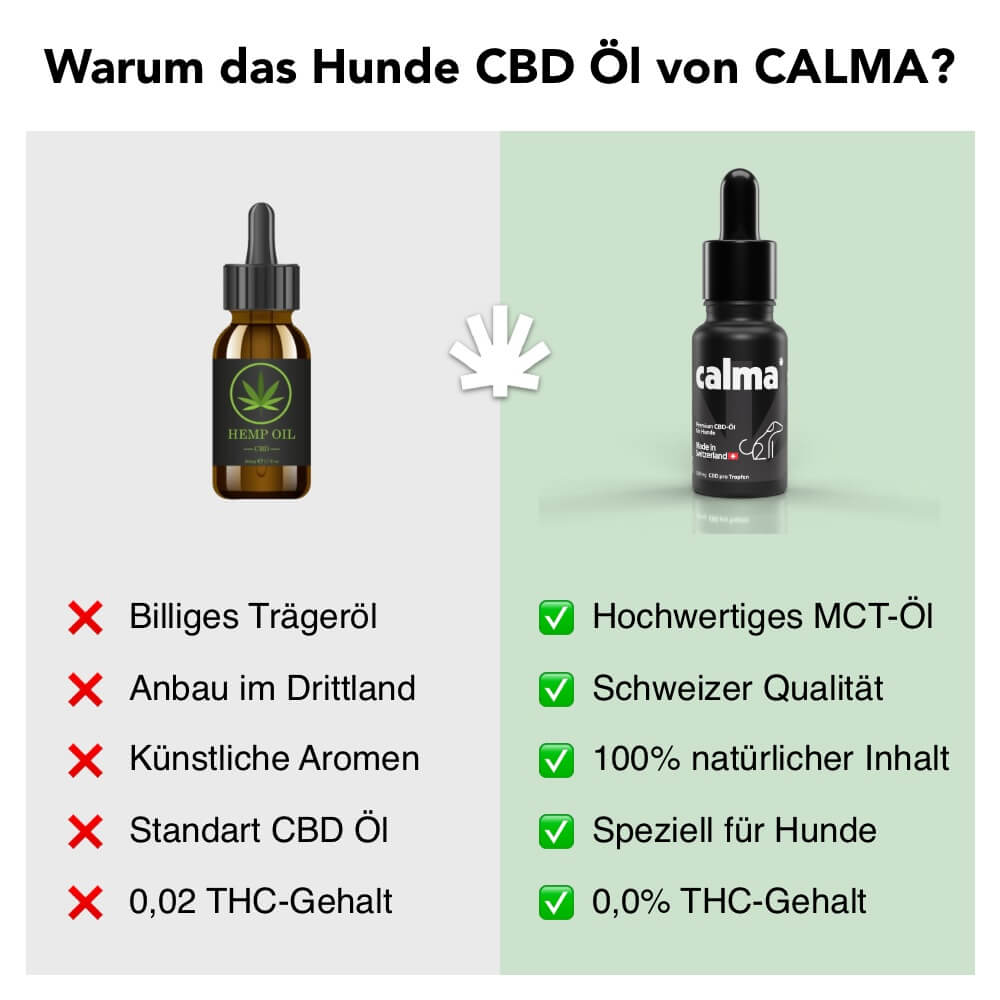
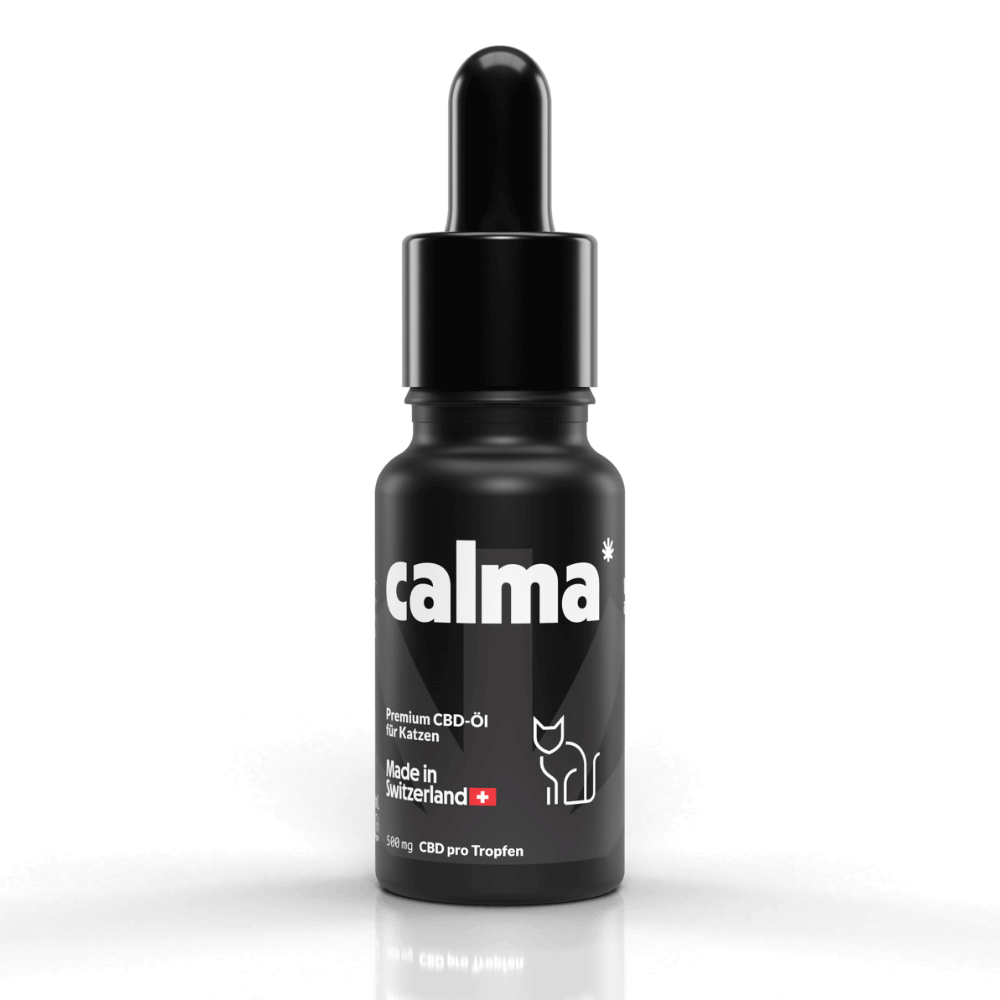
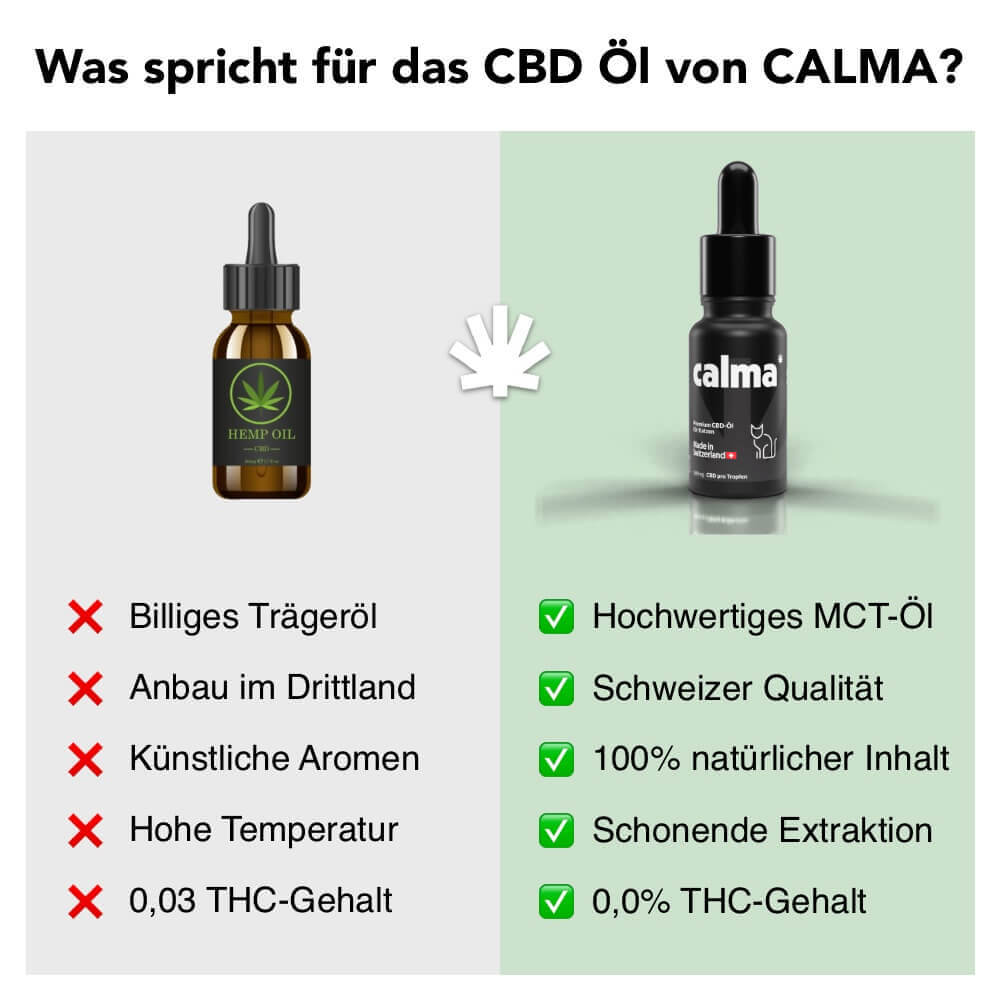
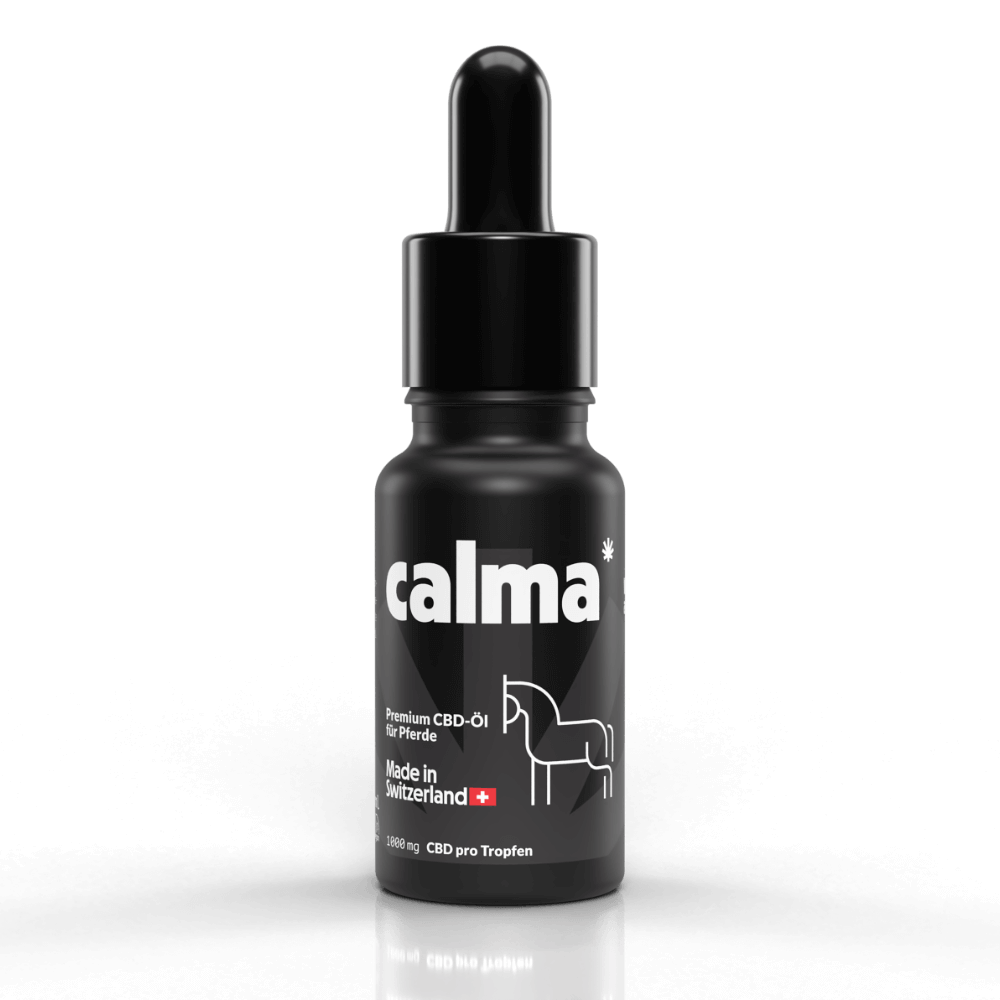
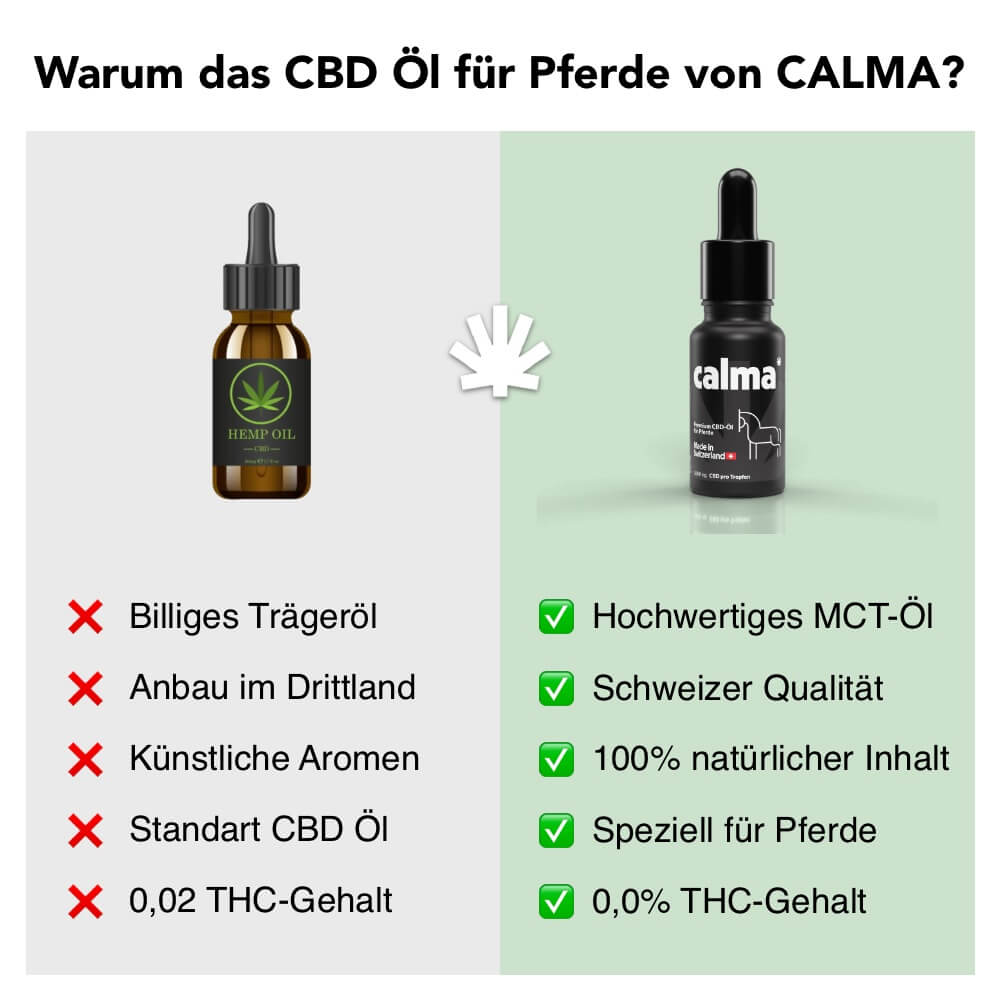
Leave a comment
All comments are moderated before being published.
This site is protected by hCaptcha and the hCaptcha Privacy Policy and Terms of Service apply.